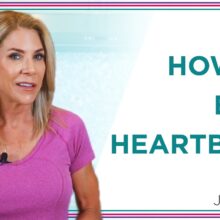How new weight loss drugs are changing the conversation around treating obesity
Well, there are no quick solutions or pills that easily solve the problems of obesity. A new crop of anti-obesity drugs is proving remarkably effective, cutting body weight by an average of 15 to 22%. These medicines, including those epic and would go V could trigger a shift in how doctors treat this, but the drugs come with a hefty price tag. Some cost over $1000 a month, and many insurance companies won’t cover them. In a moment.
William Branham talks with a specialist about this, but first, let’s hear from some people taking these trucks. My name is Nancy Barnes. I live in New Iberia, Louisiana. In a year and a half.
I have lost £107.
I’m just I’m a nurse Practitioner. I usually have her pro downs and I’m based out of California, Janet from Chicago, Illinois. I’ve been on weight medicine for a couple of months and recently found out that my insurance no longer covers it. People say, Well, if you would just quit eating You know you’d be fine and I truly believe that The stigma associated with being overweight.
Is so wrong and compared to celebrities, you know they’re doing it at least £10 to get into address the rest of us.
I just want to build better. We want our needs to quit hurting. We want the inflammation to be gone like a side effect of losing weight. But that’s not what my intended aim was. My aim was related to stop like kind of the thought patterns.
Um, and the binge eating-like cycles that I was going through and they would go V acts as kind of like an Um, shut off Switch, I guess is the best way to describe it.
I started taking it and instantly felt so much better like Um, had energy had no cravings, started kind of sweets, and then went again to get my second-month refill. That’s the beginning of January and again. It was $25 then, just recently had to get my next month. And the, um They told the pharmacy told me it would be $2000 and she goes.
Do you realize that it’s $2000? And I’m like, no. I think making these medications more accessible is important because not only is it super expensive, which I’ve had, but even when your insurance does cover it, I’ve had to spend hours and hours on the phone with my insurance company. Um, and that’s me as a medical provider, like understanding how to navigate the system, and I’ve had to spend so much time just to access I’m medication every month.
At this point.
It’s really kind of up in the air. I’m not sure what’s going to happen. And to me, it’s kind of scary because It’s something that’s working for me finally, and for it to be taken away is very heartbreaking. And I just feel better. I mean, the whole point to me.
My blood pressure is not 20 5/1 40. It’s normal and I can walk my dog. So those are some of the many people who are taking these drugs and seeing some real benefits. But soaring demand for these medications has also led to shortages, which can leave diabetic patients who also use some of these drugs stuck. So from a medical perspective, I’m joined by Dr Fatima Cody Stanford, She’s an obesity medicine physician at Massachusetts General Hospital and a professor at Harvard Medical School.
For the record, she is a consultant to several farms.
Suitable companies, including the one that makes us impact. Dr. Stanford So good to have you on the news hour. I wonder what is your take on these medications?
Do you see them as this remarkable new evolution and treatment And if they are working, why are they working this way? First of all, thanks for having me and I am so happy to finally hear a conversation where we’re beginning to address this chronic disease that is obesity, and these medications spend their time acting primarily on the brain to up-regulate one of the pathways that tell us to eat less than store, Liss.
While down-regulating a pathway that tells us to eat more in-store. So that’s the primary weight and where these medications work. And so when we listen to those individuals who have had a chance to experience the benefits of these medications, you’ll hear about how they influence their daily lives, and that’s how these medications work.

Now there are several medications in addition to these that we’re talking about today that also influence how the brain sees weight. And so we need to recognize that all things don’t work for All people. Even people with obesity have differences in how their bodies navigate different agents to help them treat obesity, including the medications that we’re talking about today. So people who do have the disease of obesity are taking these medications.
Do they take them for life?
Is that correct? Yes, that is And you know, I have thought about this quite a bit William, trying to figure out like, how do I explain this to people? No one expects to eat, you know, one healthy mill and expect that to last them indefinitely. Nobody does one great workout and expects that to last indefinitely. Similarly, these medications are acting on different portions of the brain.
And while they’re being used they are effective as soon as you pull them back They are no longer acting on the body much like if you’re no longer eating a healthy diet, you no longer exercising. Those things are working on the body. So I think that if we think about the need for a chronic, healthy diet, and chronic exercise for those people that these medications are effective for we do need to use them Chronically.
We heard in the voices before this that Some patients were having trouble paying for it because their insurance had run out. Do you believe from your expertise that on balance these provide enough benefits that they ought to be covered by insurance?
M is a strong advocate for coverage of this chronic disease. What we know to be the largest chronic disease in human history affects over 42% of the population, and that’s based on 2018 numbers. As you know we’re in 2023. So those numbers are much likely higher. We know that obesity Leads to over 230 other diseases, so why not treat the one that’s contributing to it?
Unfortunately many others? Um, I think the cost-benefit ratio is one that we have to be aware of. And we also know from a lot of data that these medicines approve both your cardiovascular health and non-cardiovascular health. What do I mean by that? We know it reduces the rate of stroke.
Heart attack admission for heart failure. These are things that we can’t discount. And so if we know this if the data shows that and we have robust data showing that, then why not utilize these medications and individuals that could benefit as you well know, there is this ongoing discussion about the disease of obesity and how we treat it? Whether it’s something to be quote-unquote cured or not. There’s so much you know, shame and stigma attached to it as well.
Where do you come down on that? And how do these medications fit into that discussion? Well, I do know that shame and stigma are very, very pervasive. The two most common forms of bias in the US are race bias followed very closely by weight bias. We judge we devalue.
We dehumanize individuals who struggle with this disease and we don’t feel like they deserve any form of therapy. We believe that they have done this to themselves.
After treating over 10,000 patients with obesity. I can tell you that is not the case they’ve tried. They’ve struggled, and we’ve not been able to offer them any, um, benefits from other things that we would do for chronic diseases, which are medications, which are surgical and inventions that sometimes people often need.
This is a chronic disease. And so there is no magic pill. There is no magic injection. There is no magic surgery, but we can treat that person. Over the long term, furthers disease and helps improve their overall health and their ability to navigate the earth.
One of the things we heard and one of the guess out takes was that a woman talked about Hey, I just want to be able to walk my dog. That’s not something that a lot of us have to think about. We’re able to do that with these without any stress or strain.
Why shouldn’t every human have that ability? Dr Fatima Cody.
Stanford. Thank you so much for being here. Thanks.






